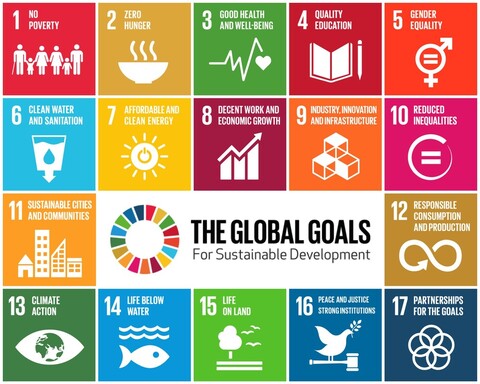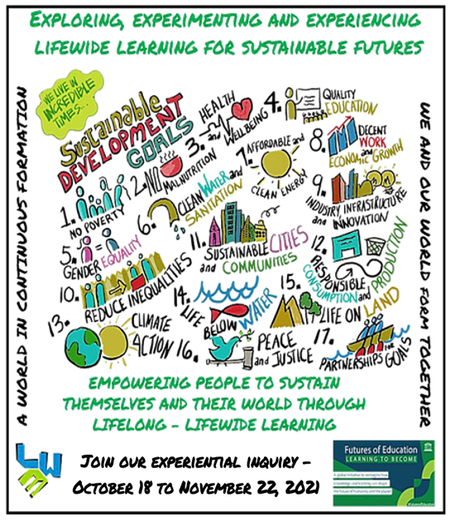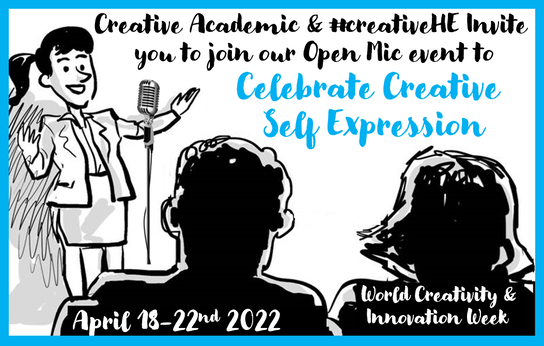|
Sustainable Futures Background Paper
|
| ||||||

Humans have always engaged in lifelong learning but it has meant different things at different points in our history and this will always be the case. The contemporary world is complex, hyperconnected, turbulent and increasingly disruptive. It’s a world in rapid and continuous formation and rapid degradation driven to a large extent by human behaviour. It’s also a fragile world that cannot be sustained if we carry on using it in the way we have. The wicked problem of our future survival is framed by the United Nations 2030 Agenda for Sustainable Development, which offers 17 Sustainable Development Goals (SDGs). Education has its own goal - SDG#4 'Ensure inclusive and equitable quality and promote lifelong learning opportunities for all'. This SDG gives education a new role – to educate the world in ways that will encourage behaviours that will support sustainable development. It also contains within it a new and important role for lifelong learning – to enable individuals and societies to learn how to sustain themselves and their world.
The recognition that education and learning for sustainable development is a whole of life commitment and practice means that any policy that is focused only on formal education will not deliver the SDGs. What is required is an expanded vision of learning and action as a lifewide (every part of life at any point in time) lifelong (every point in time along the journey of life) process, and a culture that values learning in every aspect of life, and values learning as the pathway to creating a better world. It’s a vision and culture that reaches beyond the SDG#4 goal of promoting lifelong learning opportunities for all, to the idea that “the whole of life is learning therefore education can have no ending” first proposed by Charles Lindeman nearly a century ago. Without learning we cannot sustain our futures - a deliberately ambiguous phrase to cover the multitude of futures that are possible for ourselves, our offspring and generations to come, our societies and future societies and the planet that sustains and nourishes all life.
The recognition that education and learning for sustainable development is a whole of life commitment and practice means that any policy that is focused only on formal education will not deliver the SDGs. What is required is an expanded vision of learning and action as a lifewide (every part of life at any point in time) lifelong (every point in time along the journey of life) process, and a culture that values learning in every aspect of life, and values learning as the pathway to creating a better world. It’s a vision and culture that reaches beyond the SDG#4 goal of promoting lifelong learning opportunities for all, to the idea that “the whole of life is learning therefore education can have no ending” first proposed by Charles Lindeman nearly a century ago. Without learning we cannot sustain our futures - a deliberately ambiguous phrase to cover the multitude of futures that are possible for ourselves, our offspring and generations to come, our societies and future societies and the planet that sustains and nourishes all life.
|
|
Lifewide Education is responding to the UNESCO’s 2030 call for ‘learning for a more sustainable world' by facilitating inquiry and experimentation into the way lifewide learning and education might contribute to a paradigm of learning and action that embraces consciously and fully the lifewide dimensions of everyday life and its fundamentally ecological and formational character. Learning for sustainable futures does not mean anything to us yet but through our inquiries into our own learning lives we will discover what it means.
|
Our Programme of Work in 2021 & 2022
1 We are a partner in the UNESCO Institute for Lifelong Learning Futures of Education Initiative - contributing perspectives on lifewide learning and learning ecologies. See our post on the UILL BLOG
2 We prepared a WHITE PAPER for Futures of Education initiative “Enriching and Vivifying the Concept of Lifelong Learning through Lifewide Learning and Ecologies for Learning & Practice”. The WP set out our initial ideas on a lifewide and ecological approach to learning could support the UNs developmental agenda. In the next phase of our work we will begin to apply some of these ideas to our learning lives.
| white_paper_.pdf | |
| File Size: | 1914 kb |
| File Type: | |
3 We are sharing our thinking on the way lifelong learning needs to evolve to support sustainable futures through conferences. We have provided a chapter to the next issue of Springer's Handbook of Lifelong Learning and have contributed to the “Education Policy Support for Children’s Education in the Highland Plateau of China Conference”. In December we will present to the Congreso Internacional de Innovación Educativa 2021 del Tecnológico de Monterrey - an important forum for sharing educational thinking and innovation in Spanish speaking South America.

4 Experiential Experimental Inquiries
In September we will collaborate with Creative Academic to facilitate an inquiry into the way in which imagination and creativity support sustainable regenerative futures during the UNs Global Goals Week.
In October we will facilitate a 5 week experimental inquiry between October 18 and November 22, 2021 in our 'Lifewide Learning Research and Development' group space on Linked In. The focus will be on how, we as individuals, might use our lifewide learning to change our thinking and behaviours in order to live more sustainable lives and contribute to a more sustainable world. We want to reach out to people all over the world to reflect the diversity of our planet and cultures. Further details about the inquiry will be posted here but if you would like to join our inquiry please contact the project lead, Professor Norman Jackson [email protected]
CLICK HERE FOR FURTHER INFORMATION ABOUT THE INQUIRY
In September we will collaborate with Creative Academic to facilitate an inquiry into the way in which imagination and creativity support sustainable regenerative futures during the UNs Global Goals Week.
In October we will facilitate a 5 week experimental inquiry between October 18 and November 22, 2021 in our 'Lifewide Learning Research and Development' group space on Linked In. The focus will be on how, we as individuals, might use our lifewide learning to change our thinking and behaviours in order to live more sustainable lives and contribute to a more sustainable world. We want to reach out to people all over the world to reflect the diversity of our planet and cultures. Further details about the inquiry will be posted here but if you would like to join our inquiry please contact the project lead, Professor Norman Jackson [email protected]
CLICK HERE FOR FURTHER INFORMATION ABOUT THE INQUIRY

Between March-June 2022 we will undertake a second inquiry based on a series of Action Learning Projects.
CLICK HERE FOR INFORMATION ABOUT THE INQIUIRY
CLICK HERE FOR INFORMATION ABOUT THE INQIUIRY
How might we create personal meaning from the SDG's?
Relating ourselves and our everyday life to goals set out by a global policy maker can be quite daunting but there many ways that we can enact the SDG's and contribute to a more sustainable world. The Good Life Goals provide a useful starting point for seeing how we act on the SDG's in our own lives and circumstances.
Relating ourselves and our everyday life to goals set out by a global policy maker can be quite daunting but there many ways that we can enact the SDG's and contribute to a more sustainable world. The Good Life Goals provide a useful starting point for seeing how we act on the SDG's in our own lives and circumstances.

